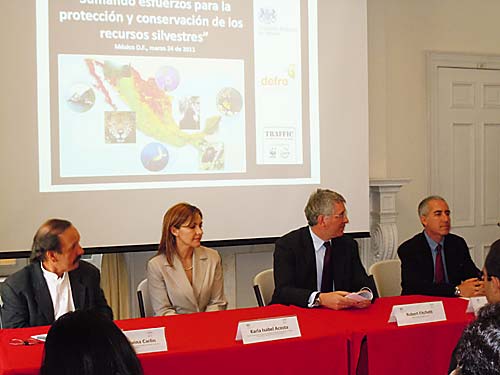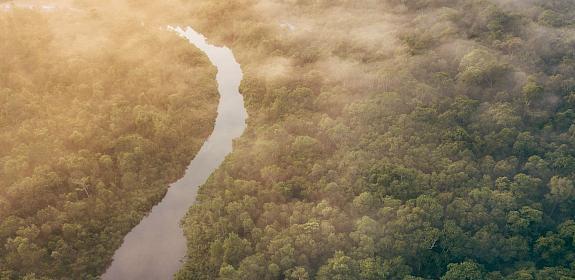Successful project to combat illegal and unsustainable trade in Mexico
Mexico City, 29th March 2011—Results of a hugely successful programme to build capacity to tackle illegal and unsustainable wildlife trade in Mexico were presented last week at the British Embassy in Mexico.

The two-year Improving governance of wildlife resources through enhancement of CITES implementation and sustainable use practices in Mexico saw enforcement officers in more than 80% of seaports, airports and borders crossings in the country receiving high quality tools, information and training on priority wildlife trade issues.
The project’s training and development of materials focused on relevant national and international legislation and on wildlife trade issues, including marine turtle trade, identification of cacti, orchids and reptile skins, and how to handle raptors, parrots and other birds.
More than 1,100 pieces of specialist animal handling equipment and tools to enable identification of tropical timbers were donated to 72 border checkpoints and official wildlife centres in Mexico.
The project, undertaken in collaboration with the General Attorney for the Protection of Environment (PROFEPA) and the Wildlife Directorate (DGVS) of Mexico’s Environmental Ministry (SEMARNAT), was so successful it is being used as a model for similar activities in countries elsewhere in the region, including Nicaragua, El Salvador, Costa Rica, Guatemala, Honduras and the Dominican Republic.
“The Improving Governance project demonstrates the United Kingdom’s keen interest to help establish the necessary conditions to ensure Mexico’s extraordinary biodiversity is conserved,” said Robert Fitchett, Deputy Chief of Mission with the British Embassy in Mexico.
Mexico is a country with exceptionally high biological diversity, although like many developing nations these resources are under extreme pressure, reinforcing the need to establish best practices to combat illegal trade and non-sustainable use of flora and fauna.
“Mexico is the world’s fourth most biologically diverse country and number two in terms of ecosystem diversity,” said Adrian Reuter, TRAFFIC’s National Representative in Mexico.
“A staggering ten percent of the world’s animal and plant terrestrial species live in Mexico: it is a global natural treasure that we simply cannot afford to lose.”



